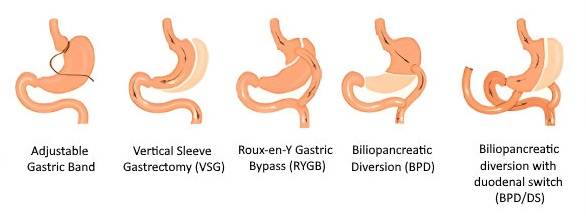Bariatric surgery can be an effective treatment for people who are struggling with obesity and have been unable to lose weight through diet and exercise alone.
It can help reduce the risk of developing obesity-related health complications, such as diabetes, heart disease, and stroke.
Additionally, bariatric surgery can improve quality of life by reducing sleep apnea symptoms, joint pain, and other related conditions. So, what are the pros and cons of bariatric surgery?
Pros:
- It can lead to significant weight loss and improve health and quality of life.
- It may reduce or eliminate obesity-related health problems such as hypertension, diabetes, sleep apnea, arthritis, and heart disease.
- It can reduce or eliminate the need for medications to manage obesity-related health problems.
- It can improve self-esteem and overall mental health.
Cons:
- Risks of major surgery such as infection, bleeding, and blood clots.
- Possible complications after surgery such as nutritional deficiencies, gallstones, and dumping syndrome.
- High cost and lack of insurance coverage for bariatric surgery in some cases.
- The long-term effects of bariatric surgery are not yet known.
- Surgery is not a substitute for lifestyle modifications such as healthy eating and regular exercise.

Weight Regain After Bariatric Surgery
Weight regain after bariatric surgery is joint, but it can usually be managed with lifestyle changes and additional surgery.
Some factors contributing to weight regain include inadequate dietary changes, lack of exercise, and inappropriate eating habits.
Sticking to the dietary plan recommended by the doctor is important to minimize the risk of weight regain. Patients should also be active and exercise regularly, which can help prevent weight regain.
A support group or regular visits with a dietician can also be beneficial. If lifestyle changes are not enough to manage weight regain, a revisional surgery may be recommended.
This type of surgery typically involves re-shaping the stomach or bypassing a section of the intestine to reduce the amount of food that can be eaten and absorbed.
Other surgical options may also be available, depending on the patient’s needs.
The alternative to this invasive procedure is to find and maintain a lifestyle and weight loss program that will deliver the required results over time and in combination with exercise.
